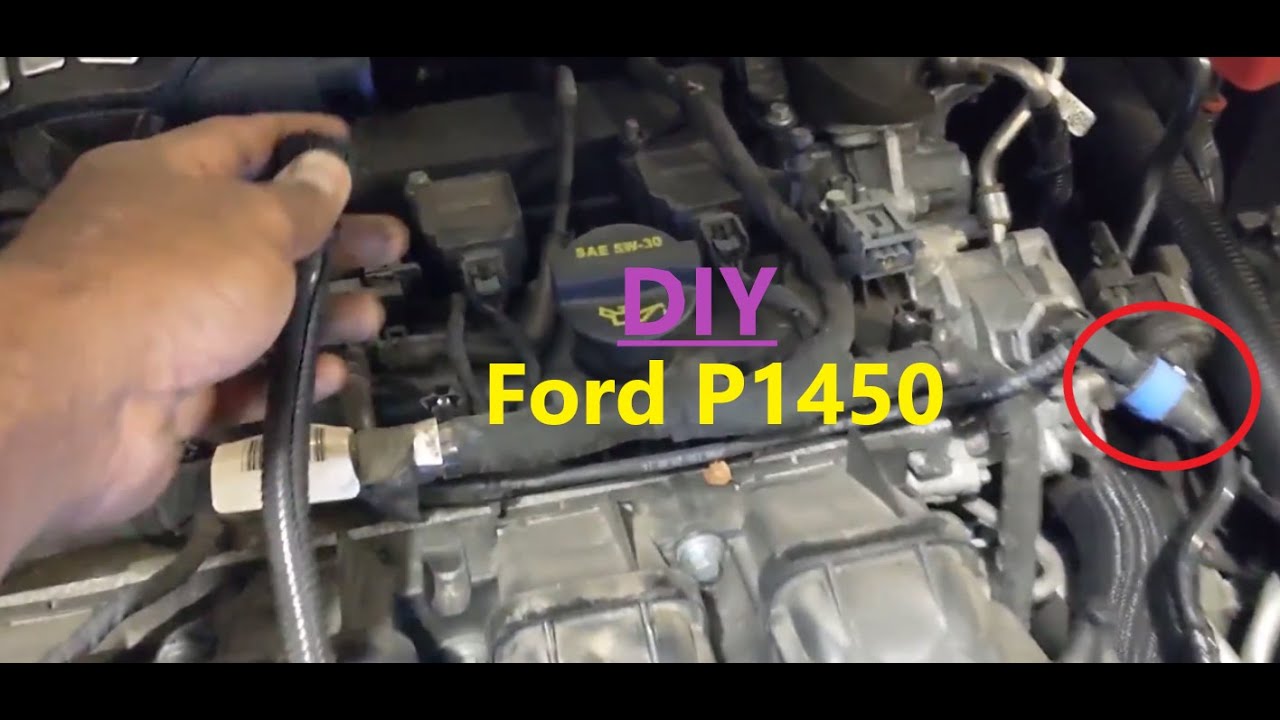Troubleshooting the p1405 Code Ford Vehicles

The p1405 code is a common issue that occurs in Ford vehicles. Understanding and diagnosing this code is important to ensure the proper functioning of the vehicle. In this article, we will discuss in detail what the p1405 code is, its symptoms, possible causes, and how to diagnose and fix it. By the end of this article, you will have a comprehensive understanding of the p1405 code in Ford vehicles and how to address it.
Understanding the p1405 Code
The p1405 code is a Diagnostic Trouble Code (DTC) that is specific to Ford vehicles. It is related to the Differential Pressure Feedback Exhaust Sensor (DPFE) and indicates a problem with the sensor or its associated components.
The DPFE sensor is responsible for measuring the pressure difference between the intake and exhaust sides of the EGR (Exhaust Gas Recirculation) system. This information is used by the vehicle's engine control module (ECM) to determine the correct amount of EGR flow. The p1405 code is triggered when the ECM detects an abnormality in the DPFE sensor's voltage or signal.
It is important to understand the significance of the p1405 code as it can affect the vehicle's performance and emissions. Ignoring or neglecting the code can lead to increased fuel consumption, decreased engine performance, and potential damage to other engine components.

Symptoms of a p1405 Code
When the p1405 code is present in a Ford vehicle, several symptoms may be experienced. It is important to note that not all symptoms may be present, and the severity of each symptom may vary.
- Check Engine Light (CEL) illuminated
- Engine misfire or rough idle
- Decreased fuel efficiency
- Lack of power or acceleration
- EGR system malfunction
- In some cases, no noticeable symptoms may be present
It is essential to address these symptoms promptly to prevent further damage to the vehicle's engine and ensure optimal performance.
Possible Causes of a p1405 Code
There are several potential causes for the p1405 code to appear in Ford vehicles. Understanding these causes can help in diagnosing and fixing the issue effectively.
- DPFE sensor circuit malfunction
- DPFE sensor voltage out of range
- DPFE sensor signal shorted to power or ground
- EGR valve stuck open or closed
- Vacuum leaks in the EGR system
Each of these causes requires a specific approach to diagnosis and repair. It is essential to accurately identify the cause to avoid wasting time and money on unnecessary repairs.
Diagnosing the p1405 Code
Diagnosing the p1405 code requires a systematic approach and the use of specific tools and equipment. It is recommended to follow these steps:
- Read and record any other codes stored in the ECM
- Perform a visual inspection of the DPFE sensor and its wiring
- Check the DPFE sensor's voltage and signal using a multimeter
- Inspect the EGR valve for any signs of malfunction
- Test for vacuum leaks in the EGR system
- Consult the vehicle's service manual for specific diagnosis procedures
It is important to be thorough in the diagnosis process to accurately identify the cause of the p1405 code. This will ensure that the correct repairs are made.
Fixing the p1405 Code
Once the cause of the p1405 code has been identified, there are several potential fixes that can be applied:
- Replacement of the DPFE sensor: If the DPFE sensor is determined to be faulty, it will need to be replaced. This involves removing the old sensor and installing a new one.
- Cleaning the EGR valve: If the EGR valve is stuck or clogged, it can be cleaned to restore proper functioning. This involves removing the valve and using appropriate cleaning agents.
- Addressing vacuum leaks: If vacuum leaks are identified in the EGR system, they need to be repaired to ensure proper operation. This may involve replacing damaged hoses or gaskets.
It is important to follow the specific repair procedures outlined in the vehicle's service manual to ensure the correct repairs are made. If you are not confident in performing these repairs yourself, it is recommended to seek professional help.
Preventing the p1405 Code
While the p1405 code can occur due to various reasons, there are preventive measures that can be taken to minimize the chances of it reoccurring:
- Regular maintenance: Follow the manufacturer's recommended maintenance schedule to keep the DPFE sensor and EGR system in good condition.
- Address vacuum leaks promptly: If you notice any vacuum leaks in the EGR system, have them repaired as soon as possible to prevent further issues.
- Clean the EGR valve periodically: Regularly clean the EGR valve to prevent carbon buildup and ensure proper functioning.
By following these preventive measures, you can minimize the risk of encountering the p1405 code in your Ford vehicle.
In conclusion, the p1405 code is a common issue in Ford vehicles that relates to the DPFE sensor and the EGR system. Understanding and effectively diagnosing this code is crucial for maintaining the vehicle's performance and preventing potential damage to the engine.
In this article, we have covered the definition and significance of the p1405 code, its symptoms, possible causes, diagnostic procedures, and potential fixes. By following the steps outlined in this article, you can accurately diagnose and address the p1405 code in your Ford vehicle.
If you are unsure or uncomfortable performing the necessary repairs yourself, it is highly recommended to consult a professional mechanic who specializes in Ford vehicles. They will have the expertise and knowledge to diagnose and repair the issue correctly.
Remember, addressing the p1405 code promptly will not only ensure the smooth operation of your vehicle but also help to prevent further damage and costly repairs.
If you want to know other articles similar to Troubleshooting the p1405 Code Ford Vehicles you can visit the category Automotive Mechanics.
